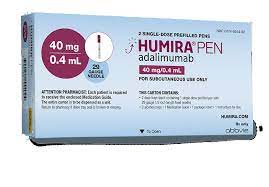The FDA has approved 2 interchangeable biosimilars—biosimilars that pharmacists could substitute interchangeably with reference drugs—since July 2021, but manufacturer-developers are seeking interchangeable status for about 7 other biosimilars, according to Jeff Casberg, MS, RPh, vice president of Clinical Development for IPD Analytics.
Casberg participated in a presentation on interchangeable biosimilars at the recent Academy of Managed Care Pharmacy Nexus 2021 meeting in Denver, Colorado.
Interchangeables are potential game changers, but also looming is the possibility of “authorized biologics,” or agents that product manufacturers develop as nonbranded copies of their original drugs, he said.
The theory is that reference product manufacturers will launch authorized biologics to compete against biosimilars and prevent loss of revenues and market share. Presumably, authorized biologics, like biosimilars, would launch at discounts to their reference products. There are no authorized biologics yet, but that seems likely to change soon, Casberg said.
The winners in this stuggle may simply be the lowest-cost drugs, he said.
When it comes to pharmacy and therapeutics (P&T) committees and the choice of which drugs are used in health care institutions, the interchangeability designation has some advantage over straightforward biosimilar status, Casberg said. “Realistically, it’s going to come down to cost, but I think interchangeability could be a tiebreaker.”
For some large institutions, it won’t matter whether it’s an interchangeable or not, he said, “if you’re in a hospital or clinic type of facility, you probably don’t need the interchangeability designation. There are policies that guide which products you can interchange as a pharmacist."
Then, there are authorized biologics.
“Authorized biologics are interchangeable. They are the same drug, and we don’t call them 'authorized biosimilars.' We call them authorized biologics because calling them authorized biosimilars would suggest biosimilars aren’t quite the same drug, so we call them authorized biologics,” Casberg said.
“Today, we haven’t really seen brand companies have the motivation to bring these authorized products to market, but I think you’ll start to see a few in the future,” he said.
The Interchangeable Pipeline
The drug pipeline is stocked with more potential interchangeables. Semglee, an insulin glargine, that received biosimilar and interchangeable status in July 2021, is a type of a hybrid. It was originally approved in 2020 via a new drug application rather than through the biosimilar regulatory pathway. It references Lantus.
Biocon Biologics and Viatris aim to relaunch Semglee with its interchangeable status and in vial form by the end of the year, at a 5% discount to Lantus and a wholesale acquisition cost (WAC) of $26.94, according to Casberg. However, the goal is also to launch Semglee as an authorized biologic in vial and prefilled syringe versions at a 65% discount to brand, or a WAC of $9.87.
That means Biocon Biologics and Viatris are playing the interchangeable and authorized biologic games with the same product, he said.
Jeff Casberg, MS, RPh
Authorized biologics are interchangeable. They are the same drug, and we don’t call them authorized biosimilars. We call them authorized biologics because calling them ‘authorized biosimilars’ would suggest biosimilars aren’t quite the same drug, so we call them authorized biologics.
Several interchangeable biosimilars and authorized biologics could emerge for the reference insulin aspart product Novolog, Casberg said. Those include MYL-1601D, from Viatris, for which biosimilar approval is anticipated in 2021; SAR341402, a Sanofi potential interchangeable, for which no FDA application has yet been filed; and an “interchangeable” authorized biologic candidate, from Novo Nordisk.
Limited exclusivity is awarded to the first interchangeable for a drug type, so if MYL-1601D is approved as an insulin aspart interchangeable, Sanofi’s candidate would not be launchable until 1 year has passed from the first date of marketing of MYL-1601D. The Sanofi product (SAR341402) could be approved in 2022, Casberg estimated.
There is one other authorized biologic pending in the insulin category. Lilly is planning an authorized biologic to follow on its insulin lispro drug Humalog.
Adalimumab Interchangeables
Cyltezo, a biosimilar of adalimumab, referencing Humira, was the second interchangeable approval from the FDA this summer. Soon to follow with an interchangeable approval in the adalimumab biosimilar category could be Abrilada, a Pfizer product, Casberg said.
However, before launching as an interchangeable, Abrilada would have to wait out Cyltezo’s 1-year exclusivity award—which is more complicated than it seems.
Cyltezo’s developer, Boehringer Ingelheim, has a settlement with the maker of Humira, AbbVie, not to bring the product to market until 2023, so that could affect Pfizer’s freedom to make use of the interchangeable designation with Abrilada.
Even before any interchangeable designation, Abrilada has been scheduled for launch as a biosimilar adalimumab in November 2023. It was approved as a biosimilar in 2019.
Another product in the adalimumab biosimilar candidate category is AVT02, from Alvotech. Casberg anticipates this product will launch sometime between 2023 and 2028, given legal hurdles.
AVT02 has the advantage of being a citrate-free, high-concentration formulation version of adalimumab, which would give it footing to compete aggressively against AbbVie’s own citrate-free, high-concentration formulation, which now commands roughly 80% of the market for adalimumab, Casberg said. The other adalimumab biosimilars lined up for US market entry in 2023 are all lower-concentration biosimilars.
In addition, Alvotech is seeking interchangeable status for AVT02.
An Authorized Adalimumab?
AbbVie has not announced any intention of launching an authorized biologic of adalimumab to compete with the biosimilar versions, but it has likely been a matter of speculation, Casberg said. “As people who manage formularies and sit on P&T committees and manage budgets, you have to start thinking about how you would manage these authorized biologics if they were introduced to market.
“If we wake up 2 weeks from now and AbbVie says they have launched an authorized Humira at a 20% discount—a year before biosimilars launch—how would you manage that?” he asked. “How would that affect your budget? What would that do to your rebate contracts? Where would you put it on your formularies?”
Other interchangeable biosimilar candidates in the pipeline include NI-071, an infliximab drug from Nichi-Iko, for which interchangeability switching studies have been completed, and ABP 654, an Amgen ustekinumab candidate, which could launch as soon as 2023, Casberg said.


